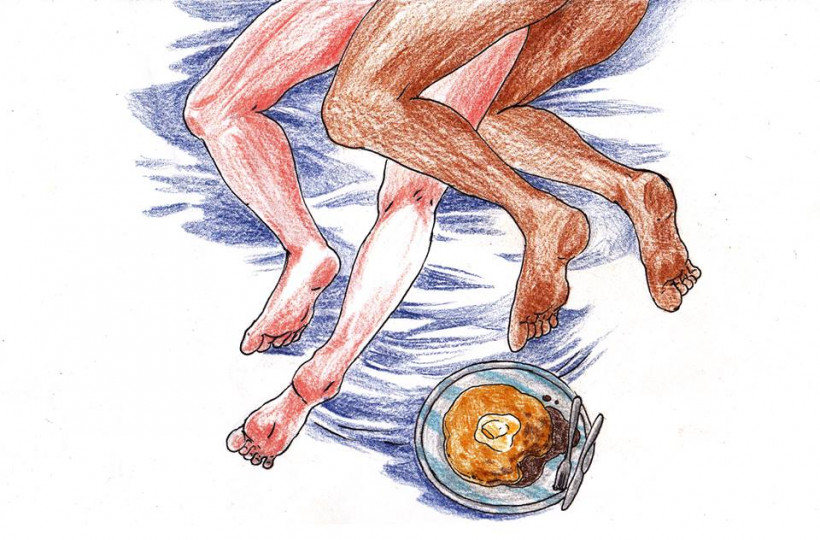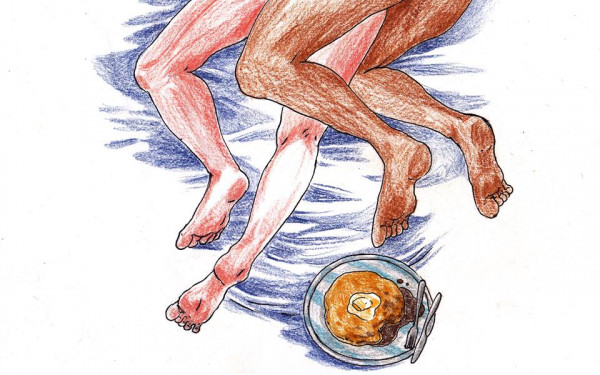We’re All That Kind of Girl
Recently, excerpts from Lena Dunham’s book Not That Kind of Girl made the rounds online. In these, she described childhood memories of being seven years old and looking at her then one-year-old sister’s vagina, bribing her with candy to kiss her, and masturbating next to her in bed. In response, the Internet exploded with articles accusing her of child molestation.
Evidently, these stories made people uncomfortable. In addition to the accusations, people started boycotting her book readings and even calling on organizations she is affiliated with to drop her. While people’s discomfort is understandable, the issues raised with Dunham’s stories aren’t about molestation or child abuse; rather they point to our discomfort with childhood sexuality.
It’s about how uncomfortable and scary it is for adults when children engage in sexual exploration and then show no shame for doing so. I know it’s uncomfortable for many to think about but these are realities for many children when they’re learning about their bodies.
It is overdramatic and dangerous to refer to what Dunham described as “child molestation.” Sexual play and a curiosity about how one’s body works are quite normal and are common examples of childhood sexual development. Most of us have experienced it, actively engaged in it, and even reflected on it as adults. However, many of us have also forgotten or repressed any memories we have of it.
Despite how common it is, it’s rarely spoken about and many people who do have vague memories of exploring alone, with their siblings or close friends as children are left not knowing how to interpret what they remember.
We regularly shame children for sexual play and exploration by interpreting their actions in the same way we would for adults. We talk as though children have malignant or predatory intent, rather than understanding that they are acting out of curiosity and exploration. Adults distort these innocent actions as they project their internalized shame about sexuality onto them.
Responding with punishment rather than education makes children internalize this shame, thus ensuring the cycle of shame continues.
We frame these actions as nonconsensual, labeling the kids as sex offenders and their actions as assault. Yet the law holds that people are incapable of giving sexual consent until the age of 16, and consent remains a concept that even adults are struggling to get right. Then why do we expect children to know what it is and how to ask for it?
I’m glad these stories are making people uncomfortable and are being talked about. I hope this discomfort makes people reflect on their own internalized shame about sexuality and how that shapes how they respond to these types of situations. The fact is that we all have this shame to some degree; and the only real way to make progress is for each of us to commit to looking within ourselves, identifying these aspects of our thinking, and then working to shed them.
The sort of childhood sexual play that Lena Dunham describes in her book is normal. We need to work towards normalizing rather than stigmatizing it. Though difficult, part of this will require people becoming comfortable sharing their childhood sexual experiences, as well as creating a space in which it’s safe for people to do so.
Once we do, we will be in a better position to deal with children’s sexuality in a way that is healthy rather than damaging. One such place has already popped up as a result; you can find it at thosekindsofgirls.tumblr.com.
In light of all this we would do well to keep in mind the words of sex researcher Michael Flood: “Protecting children from sexual harm does not mean protecting children from sexuality.”
For more, check out sex-pancakes.com and like “Sex & Pancakes” on Facebook. Quick health question? Just need a resource? Text SextEd at 514-700-0445 for a confidential answer within 24 hours!


_600_832_s.png)

